MercoPress. South Atlantic News Agency
Economy
-
Wednesday, February 22nd 2023 - 11:00 UTC
British maker of autoparts closes Argentine business

A British maker of auto parts is closing its plant in Victoria in the province of Buenos Aires on the northern outskirts of the country's capital due to the “serious economic situation” the South American nation is going through, it was reported. The sector is particularly affected by foreign exchange restrictions which render inputs unattainable.
-
Tuesday, February 21st 2023 - 10:05 UTC
Argentina ups security measures as number of avian flu cases grows
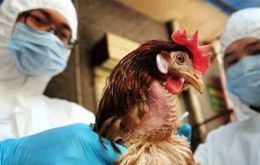
Argentina's health authorities have decided to up their biosecurity measures following the increase in the number of avian flu cases detected nationwide, particularly in provinces bordering Uruguay, but also in Córdoba and Salta.
-
Saturday, February 18th 2023 - 10:48 UTC
Argentina's reserves wane as “official” dollar rises
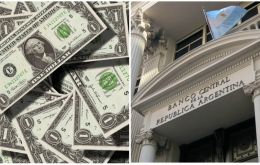
In a country where the exchange rate between the local currency and the US dollar varies from one counter to the other and hinges on the type of operation involved beyond the exchange, Argentina's official rate against Friday pierced for the first time the symbolic AR$ 200 / US$ 1 threshold at private banks, closing at AR$ 191.25 (purchase) / AR$ 199.25 (sale) at the Banco Nación.
-
Friday, February 17th 2023 - 08:05 UTC
Massa holds meeting with Indian Ambassador in Buenos Aires
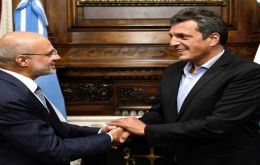
Argentina's Economy Minister Sergio Massa Thursday met with India's Ambassador to Buenos Aires Dinesh Bhatia to discuss the South American country's participation in the G-20 economic meeting and move forward in the use of local currencies for bilateral trade.
-
Thursday, February 16th 2023 - 11:31 UTC
Bird flu reaches northern Argentina
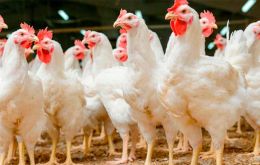
Argentine authorities have declared a state of emergency after the first case of avian influenza was confirmed in wild birds in the northern province of Jujuy bordering Bolivia.
-
Thursday, February 16th 2023 - 10:50 UTC
First shipment of Paraguayan pork lands in Taiwan

Paraguay's President Mario Abdo Benítez headed a delegation from the South American country visiting Taiwan to celebrate the arrival of the first pork shipment to that Asian market. Marking the occasion a ceremony was held in Taipei on Wednesday during which attendees could taste the new product as local businessmen pledged to increase imports shortly.
-
Wednesday, February 15th 2023 - 20:16 UTC
Biden names two Washington policy veterans as key economic advisors

United States President Joe Biden named two Washington policy veterans as key economic advisers as he faces a Republican-controlled Congress and embarks on a possible re-election run for 2024.
-
Wednesday, February 15th 2023 - 11:27 UTC
Huge Air India deal with Airbus provides thousands of jobs for UK companies

The UK Prime Minister Rishi Sunak and Business and Trade Secretary Kemi Badenoch has welcomed a momentous deal for Airbus and Rolls-Royce to provide new aircraft for Air India, which is worth billions of pounds to the UK.
-
Wednesday, February 15th 2023 - 10:06 UTC
EU upgrades Uruguay's status regarding tax cooperation
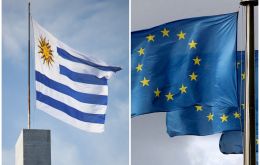
Uruguay has been recognized as a “cooperating jurisdiction without commitments” by the European Union (EU) after a series of taxation improvements, the South American country's Ministry of Economy and Finance (MEF) confirmed Tuesday.
-
Wednesday, February 15th 2023 - 09:49 UTC
UK's inflation reached 10,1% in January, National Stats Office

United Kingdom's twelve-month Consumer Prices Index (CPI) reached 10.1% in January against the 10.5% increase recorded in December while missing estimates of a 10.3% print, the UK Office for National Statistics (ONS) reported on Wednesday. The index keeps moving away from its highest level since January 1981 at 11.1% last year.
